UIC Pharmacy researchers share their sources of inspiration and motivation
How UIC Pharmacy researchers blend purpose and passion with scientific acumen to discover new knowledge
Whether motivated by their personal connections to a disease, deeply held philosophical underpinnings, or an intense, unrelenting curiosity, UIC College of Pharmacy researchers’ ability to blend deep scientific knowledge with a sincere desire to advance drug discovery and adjacent areas, such as drug delivery, diagnostics, and adherence, continues to generate profound results.
To read the print version of this story, see our magazine The Pharmacist.
Jeremy Johnson Heading link
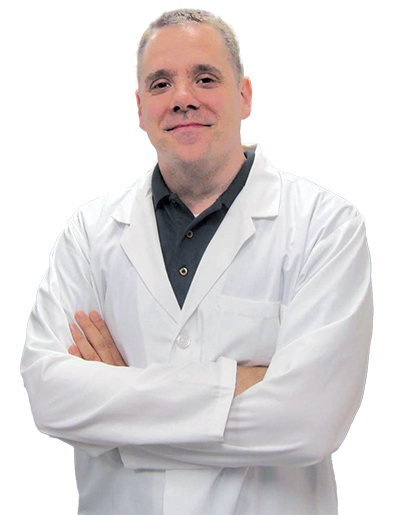
A Spirited Quest to Discover the Cancer-Fighting Power of Natural Products
For much of the last 15 years, Dr. Jeremy Johnson, associate professor in the Department of Pharmacy Practice, has been exploring the mangosteen fruit’s potential to address prostate cancer, a disease recording 1.3 million new cases each year, according to the World Cancer Research Fund.
In preclinical studies, Johnson’s lab has isolated nine different compounds from the mangosteen, a popular fruit from Southeast Asia that Johnson first discovered as a young research fellow thumbing through a catalog of novel compounds. Each of the nine mangosteen compounds holds its own unique targets. Johnson hopes his research inspires novel approaches to target the androgen receptor known to play a pivotal role in prostate cancer’s development and progression.
“I’m encouraged by the opportunity to move this research to clinical trials and impact lives,” says Johnson, whose work on the mangosteen earned him a MERIT Award from the National Institutes of Health in 2019.
For Johnson, who proclaimed his intentions to become a scientist as a six-year-old, the promise of researching natural products and drug targets continues to excite.
“Discovery is so appealing to me, even more when you consider its potential effect on real lives,” says Johnson, who is also investigating rosemary’s therapeutic potential in breast and prostate cancer cases.
Greg Calip Heading link

A Foundational Moment, Big Data, and Battling Cancer
As a 10-year-old boy, Greg Calip, PharmD ’08, PhD, MPH, watched his young cousins confront the death of their father from colorectal cancer. It was a foundational moment for Calip.
“I knew even then that if I was somehow capable of helping cancer patients, I would,” Calip says.
Though Calip assumed his cancer-fighting efforts would occur in clinical settings, the UIC-trained PharmD discovered an aptitude for big data while pursuing his PhD in epidemiology at the University of Washington. Today, big data is the weapon Calip wields against cancer.
In March 2021 in JAMA Oncology, Calip and his team reported findings that the 21-gene recurrence score, a tool frequently used to identify breast cancer candidates for adjuvant chemotherapy, was less predictive for racial and ethnic minority patients. As a result, black women in the United States were more likely to die of axillary node-negative breast cancer than their white peers carrying comparable recurrence scores. Those findings crystallize the need for model calibration and more inclusive research designed to narrow existing health disparities and improve outcomes for all cancer patients.
“Real-world patient data has a role in pushing drug discovery forward and improving treatment options for cancer patients,” says Calip, an associate professor in the Department of Pharmacy Systems, Outcomes, and Policy.
Lisa Sharp Heading link
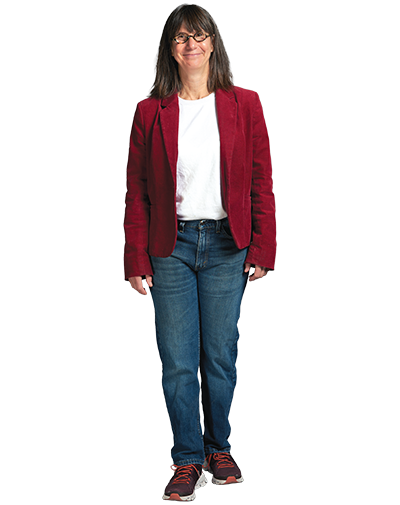
Bringing Patient Context to Drug Discovery
A clinical psychologist who specializes in health, Dr. Lisa Sharp is committed to making sure existing as well as new therapeutics consider patient-side context.
“You can come up with all the wonderful drugs in the world, but if patients are not able to follow through and take the medications as necessary, then it’s futile,” says Sharp, whose perspective has been shaped by a childhood in Oklahoma in which she saw many around her struggle to manage their health.
Since arriving at UIC in 2012, Sharp, an associate professor in the Department of Pharmacy Systems, Outcomes, and Policy, has devoted much of her research to understanding the healthcare barriers UI Health patients face and designing relevant interventions to cultivate improved outcomes. Over the last decade, for instance, Sharp has steered a UI Health program focused on vulnerable patients struggling to control their type 2 diabetes. The program includes sending race, ethnicity, and language-concordant health coaches directly into patients’ homes to facilitate care and directly address patient struggles.
“We don’t do a great job in the healthcare system of considering the challenges of people taking medications,” Sharp says. “But if we can bring patient context into drug discovery, then we’re in a much better position to drive improved patient outcomes.”
Steve Lee Heading link

Developing Tools to Improve Cancer Diagnosis and Treatment
As a chemical engineering undergraduate student, Dr. Steve Lee readily admits cancer research didn’t register on his radar. When a beloved uncle passed away in 2014 of lung cancer, however, the prospects of improving cancer diagnosis and treatment options took on added meaning.
Lee, an assistant professor in the Department of Pharmaceutical Sciences, has spent recent years leveraging his engineering background to develop new tools and methods for drug delivery research, including the creation of a microscopic tool that enables 3D tissue image sampling at cellular resolution. The innovation allows investigators to view both the cancer cell and the cancer drug in the same tissue in 3D, which can provide clinicians richer insights into how a specific drug is attacking a cancerous cell.
“With this knowledge, we can then modify drugs chemically or genetically so more of the drug goes to the cancerous cells,” says Lee, who is also trying to integrate his lab’s microscopic technique with other tissue assay technologies.
While Lee says his mother’s recent brain cancer diagnosis has brought an added layer of urgency and motivation to his work, he also finds inspiration in UIC colleagues like Dr. Debra Tonetti who have seen their cancer drug candidates enter clinical trials and march toward marketplace acceptance.
“This is personal for me,” Lee says. “I want to move research from the bench to the clinic and impact lives.”
Tom Gao Heading link

A Research Shift Fueled from the Pain of Loss
For much of his professional scientific career, Dr. Tom Gao worked on large-scale research of proteins and peptides, including predictive work regarding the potential side effects and toxicities of certain drug interactions. Four years ago, though, Gao’s research interests shifted after his grandmother passed from metastatic melanoma—28 years after she faced her initial diagnosis and treatment of the same disease.
“We all thought it was gone, but cancer’s a sneaky disease,” Gao says. “She was already in stage IV metastatic cancer when diagnosed this time, and it was too late.”
Noting the need for an accessible, easy-to perform test for early diagnosis, Gao has shifted part of his research focus to cancer diagnostics. Specifically, Gao and colleagues have developed a novel liquid biopsy method, a less invasive, better tolerated procedure designed to improve detection and treatment.
In a current collaboration with UI Health and Pfizer, Gao’s team is using machine learning to predict, via exosomes separated from blood and with greater than 90% accuracy, the breast cancer patients best positioned to respond to specific treatments. Gao, an assistant professor in the Department of Pharmaceutical Sciences, anticipates publishing the findings of this
work in the first half of 2022.
“Think of the time we gain if we can perform better diagnosis and treatment on everyone,” Gao says. “If successful, we will bring something great to this world.”
Eric Wenzler Heading link

Having an Immediate Impact on Patients
After earning his PharmD degree in 2012, Dr. Eric Wenzler envisioned a fruitful clinical career. After two years of residency and three years of fellowship, though, Wenzler realized the best researchers are good clinicians and vice versa.
“We identify unmet needs on the clinical side and immediately utilize our research skills and knowledge to solve those problems,” Wenzler says.
Improved alignment between the bench and the bedside has been Wenzler’s dominant focus since joining UIC’s faculty ranks in 2017 as an assistant professor in the Department of Pharmacy Practice. Specifically, Wenzler and his seven-member lab team investigate optimal use of existing antibiotic combinations against super resistant gram-negative pathogens for which there are no currently viable treatment options.
One notable example: Seeing no clear antibiotic recommendations for patients on continuous renal replacement therapy (CRRT) facing bacterial infections, Wenzler and his team began examining the use of a niche antibiotic called cefiderocol. Following in vitro studies in Wenzler’s lab as well as patient modeling, the Wenzler-led group earned the first-ever FDA-approved package insert for an antibiotic with CRRT dosing.
“This work is about putting patients at the center of care,” Wenzler says. “It’s that ability to have a tangible impact on patient lives that drives our work.”
Zack Bulman Heading link
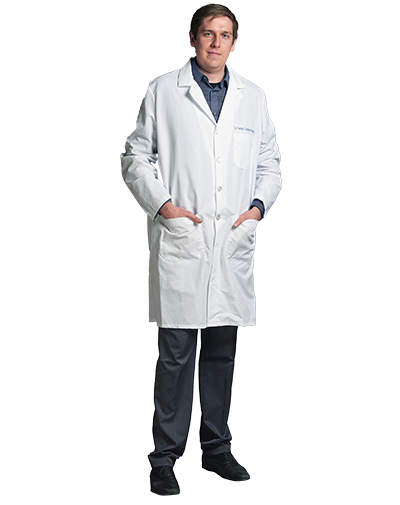
On a Mission to Preserve Antibiotics
As a high school senior, Dr. Zack Bulman rushed toward a microbiology research opportunity at the Rochester Institute of Technology. While that experience spurred a deeper attraction to scientific research, Bulman felt a disconnect between this research and its potential impact on patient care.
Intent on bridging that gap, Bulman gained a deeper clinical perspective while earning a PharmD degree. A subsequent two-year fellowship in infectious disease pharmacology, meanwhile, heightened his research pursuits.
Since arriving at UIC in 2017, Bulman’s investigative work has included optimizing antibiotic dosing for drug resistant bacteria and repurposing older antibiotics to combat newer resistant mechanisms.
“Bacteria are fascinating to me, especially how they can evolve and become resistant to antibiotics so quickly,” says Bulman, an assistant professor in the Department of Pharmacy Practice.
While long interested in preserving antibiotics for future generations, that work has gained added importance for Bulman since he became a father in January 2021. He wants to avoid a postantibiotic future in which bacteria resist the available antidotes.
“Those cases are few and far between now, but we don’t want that to become commonplace,” he says. “Becoming a father has helped me more fully consider the impact of what we’re doing in our lab and what it means to the future.”
Nora Vazquez-Laslop Heading link
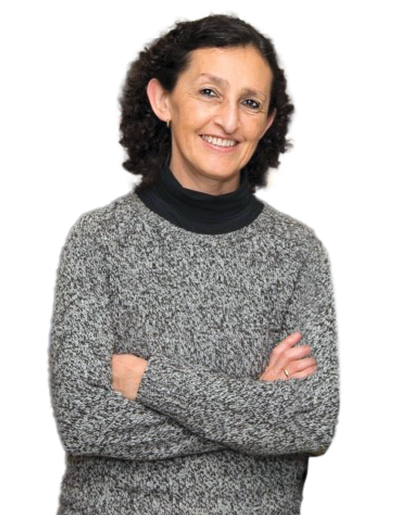
Unrelenting Inquiry to Propel Discovery
Whenever Dr. Nora Vazquez-Laslop fell ill as a child growing up in Mexico City, her father, a local surgeon, prescribed the commonly accepted antidote. A naturally inquisitive soul, Vazquez-Laslop often responded with a litany of questions about how the medication worked in her body to restore health. And her father, wise as he was, struggled to share answers.
“He knew a certain medication would help, but he didn’t fully understand how it worked at the molecular level,” Vazquez-Laslop says.
That innate curiosity led Vazquez-Laslop to study biology. “The basis of medicine,” she calls it. And it has spurred a spirited career researching protein synthesis.
Alongside her UIC colleague Dr. Alexander Mankin, Vazquez-Laslop, a research professor at UIC’s Center for Biomolecular Sciences and the Department of Pharmaceutical Sciences, studies the relationship between antibiotics and ribosomes, including the “tricks bacteria use to dodge antibiotics.” The tandem has discovered, for instance, that some antibiotics are not universal inhibitors, but rather modulators of protein synthesis. That novel finding opens the door to designing “super selective” antibiotics that only kill pathogenic bacteria.
Such research, she says, unveils gaps in seemingly well-understood concepts and creates opportunities for new methodologies that enrich knowledge and fuel compelling drug discovery.
“We see others using our research to pursue drug development or to reinterpret their existing data,” Vazquez-Laslop says. “We’re building knowledge that is driving therapeutic science forward.”
Alexander "Shura" Mankin Heading link
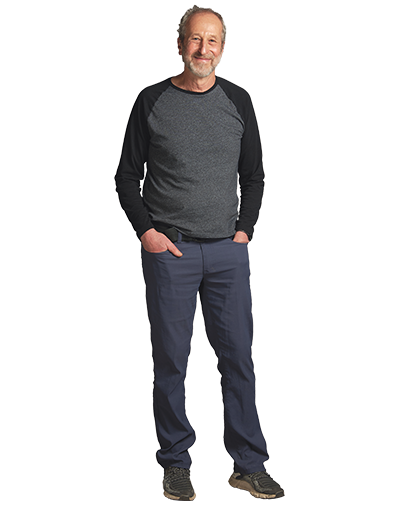
Chasing the Thrill of Drug Discovery
As a university student in Moscow in 1975, Dr. Alexander “Shura” Mankin and one of his scientific peers flipped a coin to determine their immediate research track. While the fates sent Mankin’s colleague to work on viruses, Mankin himself landed with a research group investigating ribosomes.
While ribosomes were then a rather underexplored field, interest in the scientific area exploded across the final decades of the twentieth century and into the new millennium. Mankin, meanwhile, retained that research focus and became increasingly mesmerized himself.
“The more we learned, the more interesting and mysterious it all became,” Mankin says.
Mankin carried his ambitious inquiry to UIC in 1993, eager to bring knowledge-driven drug discovery to a process long governed by serendipity. Through more than 100 published works, Mankin’s pioneering work on protein synthesis has propelled deeper understanding of how antibiotics interact with targets in the cell and continues to inform ambitious drug discovery efforts at UIC and around the world.
“We’re not discovering any drugs tomorrow, but we’re laying a foundation others can build upon,” says Mankin, a professor at the college’s Center for Biomolecular Sciences and the Department of Pharmaceutical Sciences. “When you find something no one before you knew, it’s a thrill, and there’s a feeling we’re doing something immortal in the building of human knowledge.”
Michael Federle Heading link
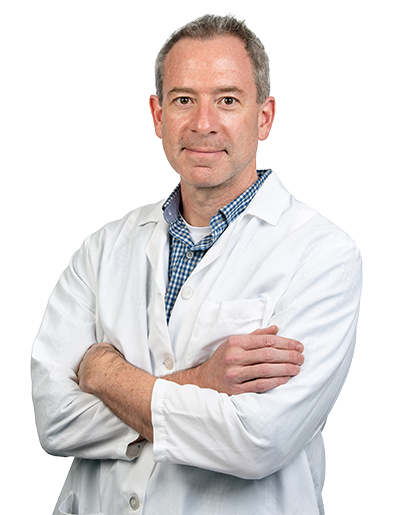
Unpacking the Mysterious Lives of Bacteria
Dr. Michael Federle calls his ongoing study of bacteria a “persistent obsession,” one fueled by the spellbinding
nature of bacteria’s active citizenship in our bodies.
“You can take one test tube of bacteria and find millions of mutants worth studying,” says Federle, a professor of in the Department of Pharmaceutical Sciences.
After years of suspecting that bacteria were “colluding and coordinating” in the human body, Federle and his lab team continue to unearth promising findings about the intricate worlds bacteria build inside our bodies. They have, for instance, helped discover the language bacteria use to communicate with one another and recently found that bacteria also alter their surface composition to manipulate the body’s immune system. This pioneering work sets the stage for the development of drug leads to intervene with this networking and unlocks opportunities for new therapies that can diffuse conspiring bacteria.
“As we identify new targets in bacteria, we can then create more precise therapies to combat them,” Federle says. He acknowledges it won’t be easy, though, as bacteria remain an elusive adversary for scientific researchers like himself.
“This is a personal odyssey for me, and I’ll openly admit there’s a selfish need to solve this puzzle,” Federle says.
Maria Barbolina Heading link
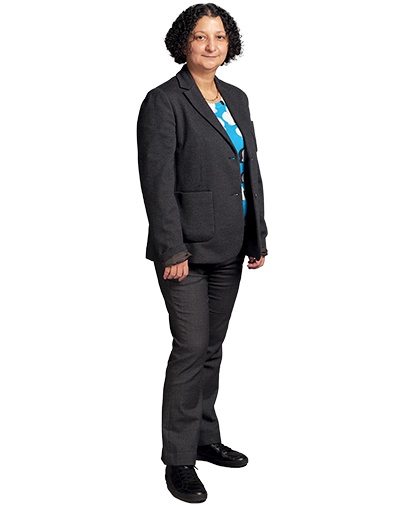
Seeking Solutions for Ovarian Cancer
While doing research review work for the U.S. Department of Defense, Dr. Maria Barbolina has listened to personal stories of women staring down their mortality and battling ovarian cancer, one of the most unforgiving, deadliest cancers. Some, like Barbolina, are in their 40s and mothers of young children.
“It hits home,” says Barbolina, an associate professor in the Department of Pharmaceutical Sciences.
In comparison to other cancers impacting women, ovarian cancer struggles to gain its share of attention. While some 330,000 U.S. women receive a breast cancer diagnosis each year, far fewer–about 20,000– hear they have ovarian cancer.
“But this is not such a rare, uncommon disease when you meet the people facing it,” Barbolina says. “I see the real people behind these statistics and I’m determined to do something about it.”
Since arriving at UIC in 2008, Barbolina has devoted substantial research attention to understanding ovarian cancer’s basic
biological activity, which continues to miff scientific investigators. Her most promising work includes repurposing a drug originally developed for neurodegenerative diseases. Early findings suggest this therapeutic may improve prognoses for ovarian cancer patients resistant to traditional chemotherapy agents.
“It’s exciting because I know what that would mean to women like those I’ve met and their families,” Barbolina says.
Karen Sweiss Heading link
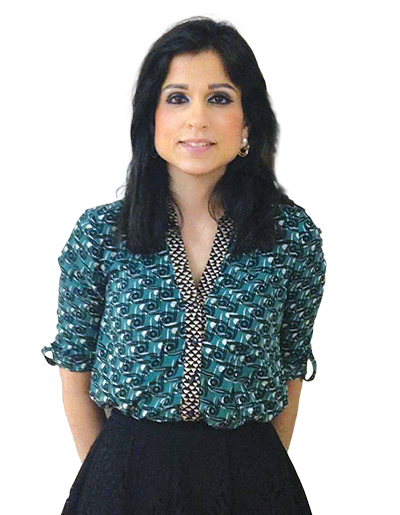
Embracing Research as an Antidote to Patient Needs
Seeing vulnerable patients daily as a clinician at UIC, Dr. Karen Sweiss understands better than most the urgent need for pragmatic research to drive change.
“I see every day how our patients are counting on us, and that pushes me to ask important research questions,” says Sweiss, a clinical assistant professor in the Department of Pharmacy Practice.
Consider Sweiss’s work around melphalan, a chemotherapy drug commonly used in treating multiple myeloma. When Sweiss’s group first began investigating melphalan pharmacokinetic (PK) variability through retrospective studies, they noted high variability in drug exposure in patients with lower hemoglobin and creatinine clearance. The group then published its experience with performing real-time melphalan PK testing to allow for rapid-dose modification based on PK estimations.
That work has led to a promising phase 1 trial with myeloma patients undergoing high-dose melphalan therapy. Sweiss is hopeful the results of the current trial will change the course of autologous transplants and usher in a new standard of care for ailing patients. “We believe we have the unique expertise to be able to translate this into clinical practice and impact patient care in a positive way,” Sweiss says. “And isn’t that the foremost goal of healthcare?”
Joanna Burdette Heading link
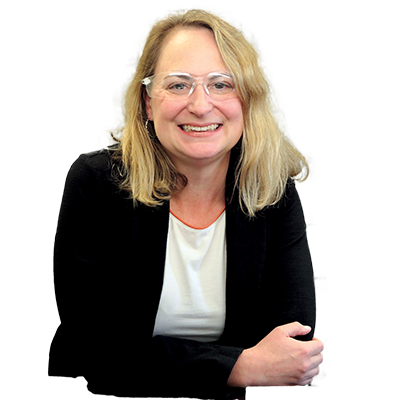
Spurred by the Challenges and the Potential to Change Lives
While prostate cancer has garnered more than $1.5 billion in federal funding over the last 25 years, ovarian cancer, a disease that frequently proves fatal within five years, has received about one-sixth that amount, according to the Ovarian Cancer Research Alliance. Though $276 million remains a mighty sum, the comparatively lagging investment in ovarian cancer has nevertheless hindered the pace of discovery regarding early detection tools and therapeutics.
And yet, Dr. Joanna Burdette charges on, embracing the underdog mentality and fighting to inject more knowledge and hope into the study of one of the world’s most lethal and mysterious cancers.
Burdette’s lab is using organ-on-a-chip technology to understand how ovarian cancer forms, a necessary step to powering more calculated drug discovery efforts. Notably, Burdette is chasing that ambitious aim herself as well, including ongoing collaborations with natural product chemists to find new ovarian cancer drugs. One compound from a Vietnamese bush has already shown promising efficacy results in animal models.
“Ovarian cancer is a difficult scientific problem, but it’s that difficulty, that challenge and how much more there is to go to change the outlook for women and families impacted by this disease, that keeps me motivated,” says Burdette, a professor in the Department of Pharmaceutical Sciences and associate dean for research.